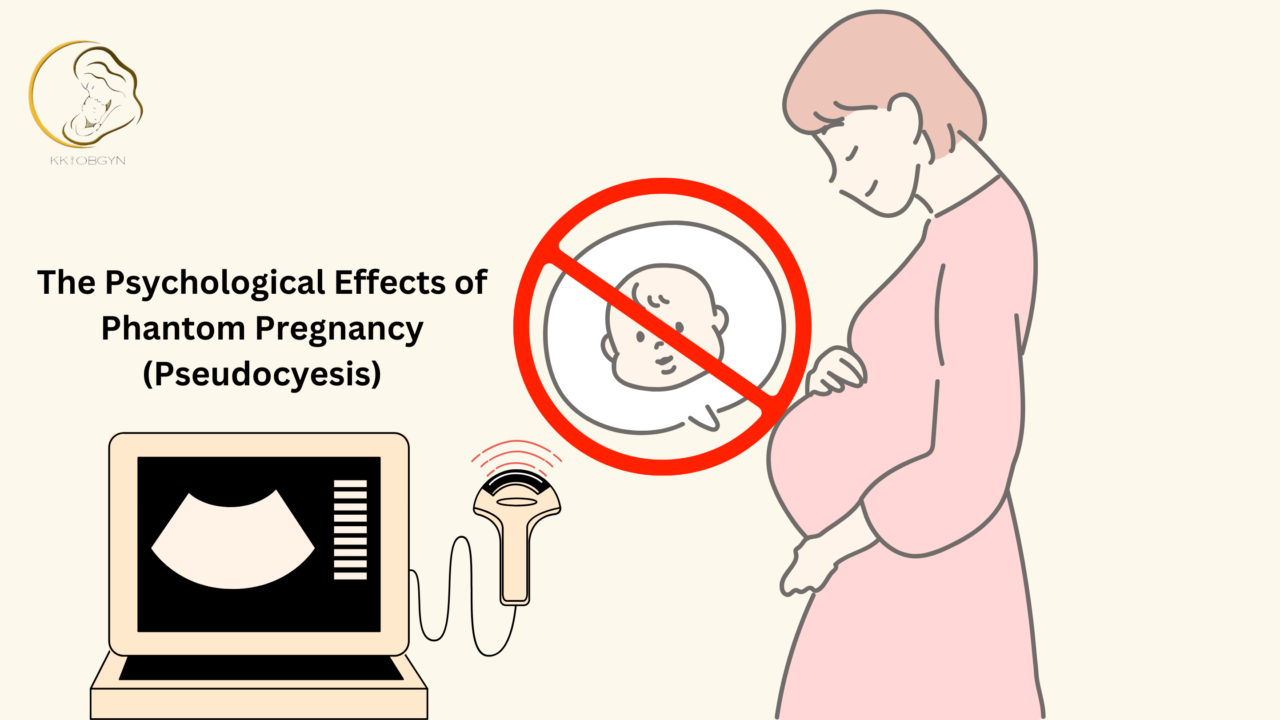Phantom pregnancy, or pseudocyesis, is a rare psychological condition where a woman experiences the physical and emotional symptoms of pregnancy despite not being pregnant. This phenomenon can have profound psychological effects, impacting mental health, self-perception, and relationships. Understanding the causes, symptoms, and treatment options for pseudocyesis is crucial for those affected and for healthcare professionals.
What is Phantom Pregnancy?
Phantom pregnancy is a psychosomatic condition where a woman genuinely believes she is pregnant due to hormonal, psychological, and physical factors. While rare, pseudocyesis has been documented in medical literature for centuries and continues to affect women worldwide.
Causes of Phantom Pregnancy
The exact cause of pseudocyesis is not fully understood, but several contributing factors have been identified:
|
Factor |
Description |
|
Hormonal Imbalances |
Increased levels of prolactin and progesterone may mimic pregnancy symptoms. |
|
Psychological Stress |
Anxiety, depression, or a deep desire to conceive can trigger the condition. |
|
Past Trauma |
Miscarriages, infertility struggles, or sexual abuse can lead to pseudocyesis. |
|
Medical Conditions |
Ovarian cysts, hormonal disorders, or pituitary gland abnormalities can contribute. |
|
Social and Cultural Influences |
Pressure to conceive, especially in certain cultures, may increase susceptibility. |
Common Symptoms of Pseudocyesis
Women experiencing phantom pregnancy may exhibit both psychological and physical symptoms similar to those of a real pregnancy.
Physical Symptoms:
- Missed menstrual periods
- Abdominal swelling (belly expansion)
- Tender or enlarged breasts
- Nausea and vomiting
- Weight gain
- Sensation of fetal movement
- Increased appetite
Psychological Symptoms:
- Strong belief in pregnancy despite medical evidence
- Anxiety and emotional distress
- Depression if pregnancy is disproven
- Hallucinations of fetal movement or heartbeat
Psychological Impact of Phantom Pregnancy
The emotional toll of pseudocyesis can be significant, particularly when the belief in pregnancy is deeply ingrained. The psychological effects can include:
1. Emotional Distress
- Extreme disappointment and grief upon discovering the absence of a fetus
- Feelings of shame, guilt, or embarrassment
- Fear of being judged by family or society
2. Depression and Anxiety
- High levels of stress and anxiety during and after the experience
- Risk of developing major depressive disorder
- Suicidal thoughts in severe cases
3. Relationship Strain
- Tension between partners due to conflicting emotions and expectations
- Family members may struggle to understand or support the affected woman
- Fear of intimacy or future pregnancy attempts due to past trauma
Diagnosis and Treatment
Since pseudocyesis presents with real physical symptoms, medical evaluation is necessary to confirm the absence of pregnancy. Diagnosis typically involves:
- Physical examination to check for uterine enlargement
- Pregnancy tests and ultrasound to confirm the absence of a fetus
- Psychological assessment to evaluate mental health status
Treatment Approaches
Managing phantom pregnancy requires a combination of medical and psychological support:
|
Treatment Method |
Purpose |
|
Counseling and Therapy |
Helps address underlying psychological issues and emotional distress. |
|
Hormonal Therapy |
Corrects any hormonal imbalances that may contribute to symptoms. |
|
Support Groups |
Provides emotional support from others who have experienced pseudocyesis. |
|
Cognitive Behavioral Therapy (CBT) |
Helps change thought patterns and manage anxiety or depression. |
|
Medication |
Antidepressants or anti-anxiety medication may be prescribed in severe cases. |
Conclusion
Phantom pregnancy is a complex condition that affects both the body and mind. While the physical symptoms can be confusing and distressing, the emotional impact is often more profound. By understanding the causes, symptoms, and available treatments, individuals and healthcare providers can work together to support women experiencing pseudocyesis. With the right psychological care, women can recover and find a path toward emotional healing.


